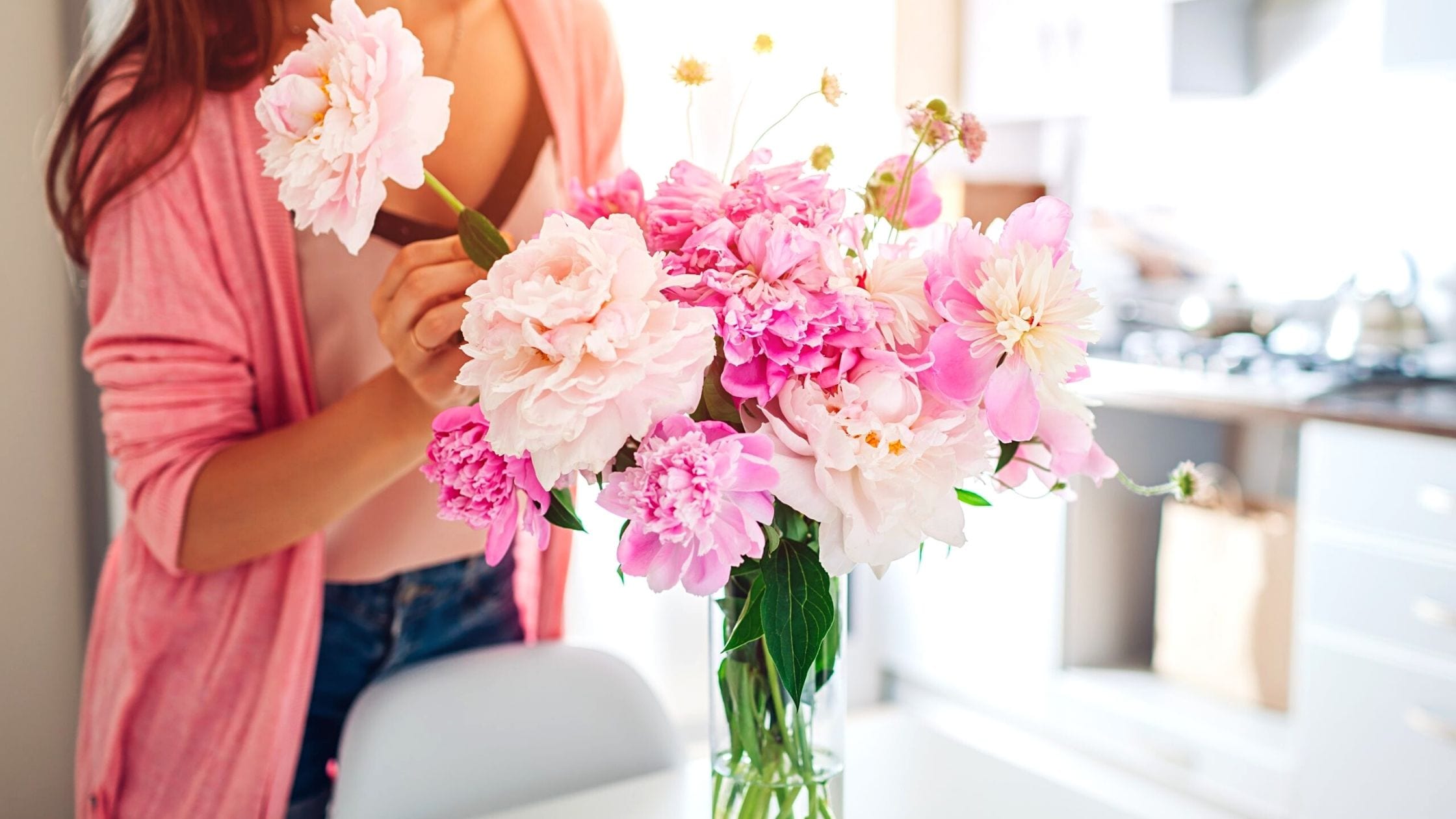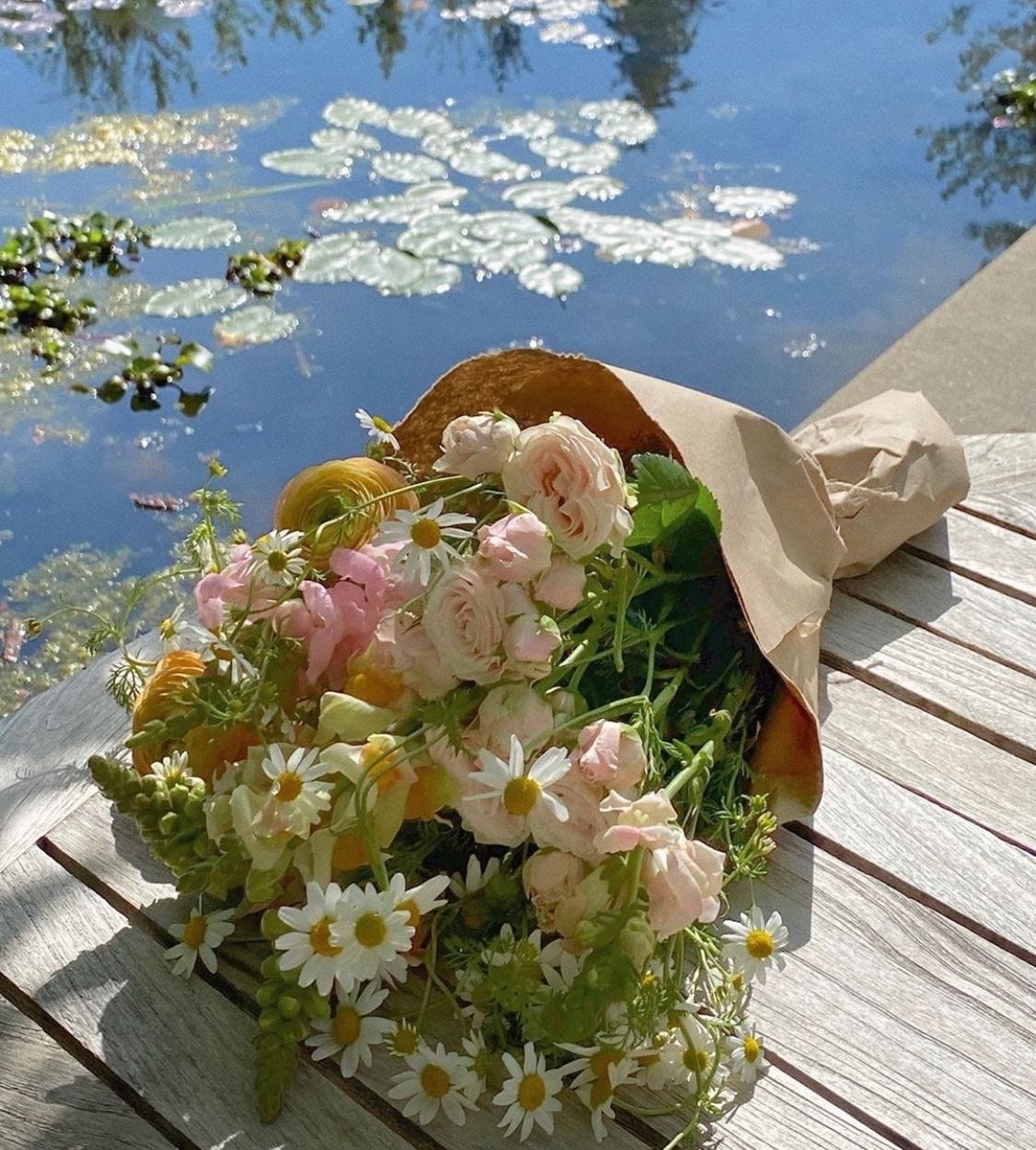Not just pretty to look at, flowers have real benefits for our mental health, helping to lift our mood, calm our minds, and make us more productive.
Stress and anxiety are all too common in our fast-paced world, and there’s no doubt that the calming effects of nature can help us manage these feelings. One of the many examples of this is through being exposed to flowers, whether in the home or in nature itself. In this post, we’ll look at why flowers have these effects and how you can use them to brighten up your day and workspace.
How Do Flowers Affect Us?
Recent studies have revealed the profound impact flowers have on our mental health. Research shows that just having flowers around can make you feel happier, less stressed, and more relaxed. This isn’t just folklore – there’s real science behind it.
Impact on Mood & Stress
Studies have shown that people who keep flowers in their homes often report feeling less stressed and more compassionate towards others. Flowers have a unique ability to induce feelings of happiness and positivity, not just in the moment but over time. There’s a reason the best florists always seem to be in a great mood!
Colour Therapy
The colours of flowers can also play a significant role in influencing our mood. For instance, blues and purples can have a calming effect, while bright colours like yellow and orange can boost energy and happiness. This aspect of colour psychology is why choosing the right flowers can be a form of therapy in itself.
Aromatherapy
Beyond their visual appeal, the scent of flowers can also contribute to stress reduction and mood enhancement. Lavender, for example, is widely known for its calming properties, while rosemary can improve focus and memory. This is the essence of aromatherapy – using floral scents to improve psychological or physical well-being.
Boosting Productivity
It is not uncommon to see plants and floral arrangements in the workplace indoors and there’s good reason for this. Studies have shown that we are happier when we are in more natural environments so it stands to reason that we are more productive and creative too. Greenery and plantlife indoors can help create a comfortable space that ensures workers are at their productive best.
Why Do Flowers Have This Impact on Us?
The positive impact of flowers and plants on humans can be attributed to several factors. The biophilia hypothesis suggests an innate human affinity for nature, implying that our connection to natural elements like plants and flowers is essential for psychological well-being. This is supported by sensory stimulation, as the visual and olfactory presence of flora can enhance mood and reduce stress.
Moreover, plants improve air quality by absorbing toxins and releasing oxygen, contributing to better physical and mental health.
The reduction of stress and anxiety through interaction with plants is also notable, as it can lower cortisol levels, blood pressure, and heart rate, fostering a state of relaxation.
The attention restoration theory proposes that natural elements can boost concentration and cognitive function, while the emotional and psychological benefits of plants, associated with positive memories and feelings, enhance mental health. Additionally, the presence of plants has been linked to faster recovery rates from illness, suggesting a healing effect.
Lastly, the aesthetic appeal and natural beauty of plants and flowers can stimulate creativity, further illustrating the multifaceted benefits of incorporating these natural elements into our daily lives.
Colour Psychology & Flowers
The colours of flowers can also play a significant role in influencing our mood. Here’s a few of the classic examples according to psychologists.
- Red flowers symbolise love and passion, energising the environment and stirring strong emotions.
- Yellow flowers represent happiness and friendship, uplifting spirits with their bright, sunny hues.
- Blue flowers convey calmness and tranquility, reducing stress and promoting mental clarity.
- Green foliage signifies growth and renewal, helping to rejuvenate and restore energy.
- Purple flowers associated with royalty, luxury, spirituality, and peace, offering a sense of calm.
- Pink flowers evoke gentleness, love, and kindness, adding a soft, nurturing touch to any space.
- White flowers stand for purity, peace, and new beginnings, bringing a sense of calm and freshness.
Incorporating Flowers into Daily Life
Integrating flowers into your daily life can be both creative and beneficial for your mental well-being. Here are a few things to think about to help you get the positive vibes that flowers send out into the world!
Bringing fresh flowers into your home – place them where you spend most of your time, like the living room or kitchen, to uplift your mood and enhance the space. Engage in flower arranging as a relaxing activity that allows you to express creativity while connecting with the beauty of nature.
If you have the space, start gardening. Whether it’s a few potted plants on a balcony or a dedicated space in your backyard, immerse yourself in the nurturing process of growing flowers.
Spend time in parks and gardens where possible. These outings can provide a refreshing escape and a new appreciation for the diversity of plant life.
In general, opt for bright and vibrant flowers like gerberas or sunflowers to stimulate energy and creativity.
Conclusion
In this post, we’ve explored the significant impact flowers can have on enhancing mental health, reducing stress, and boosting productivity and creativity. The presence of flowers in our daily environments can lead to improved mood, increased calmness, and a more vibrant, energetic work and living space. Why not experiment with integrating flowers into your daily life, whether at home or in the workplace, and observe the positive changes they bring.



No Comments